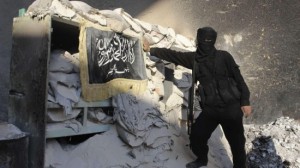Archive
Neda and Now Mahsa

We remember Neda Agha Soltan, assassinated by the goons of the abominable Islamic Republic of Iran, in June 2009. She was that young woman shot on the street while participating in a demonstration, one more, peacefully requesting more liberty from a regime that has repeatedly shown it not only despises the concept but considers it a crime. By the shock wave it sent through the world, Neda’s murder was the first major nail in the unspeakable Islamic Republic of Iran’s coffin.

It is our fervent hope that Mahsa Amini’s brutal death three days ago will finally nail that coffin shut. The young visitor to the capital had just arrived from her home in Kurdistan, accompanied by her brother, when the public morality police spotted her, in all the beauty of her youth, hair not covered up enough, a terrible danger to the Islamic men around, instantly aroused and hating her for it.
Women are tolerated in the Islamic Republic when they abide by the rules. These were defined fourteen hundred years ago by Saudi merchants on their camels peddling their wares and their morals to populations as ignorant and brutal as themselves. Part of their noble teaching was that men are allowed multiple wives. Also, that starting at age 6, women are nothing but a hole in which to relieve oneself. Arouse me at your peril. I choose when I do it, how I do it. If you provoke me, I’ll kill you.
But Iran is far from those times and those deserts. It is home to a population of 88 million people, with 60 percent of working age of which 22 percent very young. That youth is vibrant, articulate, active in all branches of work and public life, also very gifted as demonstrated with a multitude of artists in all disciplines–art, cinema or music–winning prizes and awards in international festivals and expanding their chosen fields. What’s more, it’s a highly educated population as the present regime of primitive religious scholars has not been able to shut down the innumerable pre-1979 revolution schools, universities and higher education centers, nor replace them all with institutions dedicated solely to the teachings of the Coran.
In such ferment, the Islamic Republic has to constantly reinforce its base, push the holy writings down the throat of the population which, except for the truncheon-wielding thugs and the handmaids with their head-to-toe black chadors, remains at best recalcitrant to the teachings and the rules enforced by a detested regime, at worst defiant.
The consolation, if any, in all this is that Neda, Mahsa, and all the other victimized young people who threatened no one and asked nothing but to live their life in the glory of their young years now cut short will live on and be remembered and honored when the Islamic Republic, hated and vilified as it is, will be only more dust to be blown away by time and history.
The Key to the Taliban
In the remarkable 2014 film “Iranien,” (French sp.) the French-Iranian architect and filmmaker Mehran Tamadon gives us an excellent and frightening analysis of the way Iran’s “religious” guides think and the explanation of what causes the fanaticized bearded and turbaned Islamists such as them or Taliban to hate and fear women.
He does so in a casual, offhanded way, when the handful of shiite priests he has gathered in his Tehran home to discuss faith politely ask him to remove the photos of women—a famous poet, a singer, etc.—which he has added to documents about which he would like to steer the talk. He is also requested to abstain from playing recordings of women singing.
When he asks why, the main mullah responds, as though it almost goes without saying, “a woman’s face or her voice makes men narahat (uncomfortable.)”

Of all the remarkable lines of dialogue in the film this is the one that most resonated with me. There it was, the key. Various faiths can be divided in many ways to find explanations for the more obvious or arcane ways in which they tell the faithful how to live their life. A “prescriptive” one such as Islam or Judaism is most obvious about edicts that guide every step, every act, every moment of the true believer’s life–the opposite of any thought system that would give them access to spirituality or transcendence. (No wonder that for centuries sufis, mystics or dervishes have had to water down their teaching or fear for their life.)
In “Iranien,” when Tamadon hears the request of removing women’s photos from the spread of prepared documents or not playing music sung by women as men would be made uncomfortable, he knows right away as well as we do what the cleric is talking about. “Uncomfortable” or narahat is a metaphor for sexually aroused. For males such as these Islamists, any reminder of the image, the existence, the body of a woman results in a physical reaction that will keep them in a situation that often cannot be remedied right away.
Hence the erasing of women from view and life in a place like Afghanistan or among the strictest of religious circles in Iran and other Islamist countries, as opposed to more casually Muslim ones. The woman’s duty is to serve men, in every possible way–yes, including that way–and to never ever cause them discomfort. The obsession with women is constant. Men are allowed four wives, plus, in Shiite Islam, innumerable temporary ones. Added to which, a particularly pious Muslim will be rewarded in heaven by the gift of 72 concubines with permanently renewed virginity.
This helps understand why in now Taliban-dominated Afghanistan, women must be absolutely hidden from view. Indeed, how would these holy warriors be able to mold their newly reconquered country into a proper sharia framework if they have to go about in the permanent state of sexual arousal which would result from women being allowed in the public sphere.
So, cover them up, keep them away from markets and schools as it’s hard enough to imagine the delights lurking under that blue burka without satisfying an instantly raging desire. And if imagination cannot be conquered and imagined delights from that hidden female flesh become uncontrollable, at the very least beat the culprit to a pulp, or stone her and throw her battered remains in a well, or make her drop to her knees in a public square and behead her. That’s all she deserves for putting a man in this narahat state when he has no immediate relief in sight.
Islam Is Killing Us
Anxiously counting the days until November 4th and the US elections results doesn’t cancel or even slow down the vortex of other matters that call for attention and sometimes bring us much anger and sorrow. As reflected in the news, Paris where I live is once more under Islamist attack. The assassination and decapitation on October 16 of a high school teacher who, discussing freedom of expression with his class showed as illustrations the caricatures of the Prophet Mohammad (which, in 2015, had caused bloodshed with 15 deaths) causes, again, immense indignation, and more fear that this Western democracy where the separation of state and church or secularism (laïcité) has been law since 1905 will have to adopt strict measures that go against its culture and principles.
Read more…Respect Me or I’ll Kill You
Warning, do not read this post if you are quick to take offense. That covers a good number of people, mafiosi, petty crooks, but also those exiles in, or immigrants to, Western democracies who consider degenerate the mores of the land and find themselves insulted and deeply offended by the slightest criticism. Respect–italics, capital R–is a great concept that has now become twisted and the primary driver of any exchange between people with wildly differing views on family, society, religious belief, on virtually any subject. It has become the basic requirement–which would be fine if it didn’t flow in one direction, only. 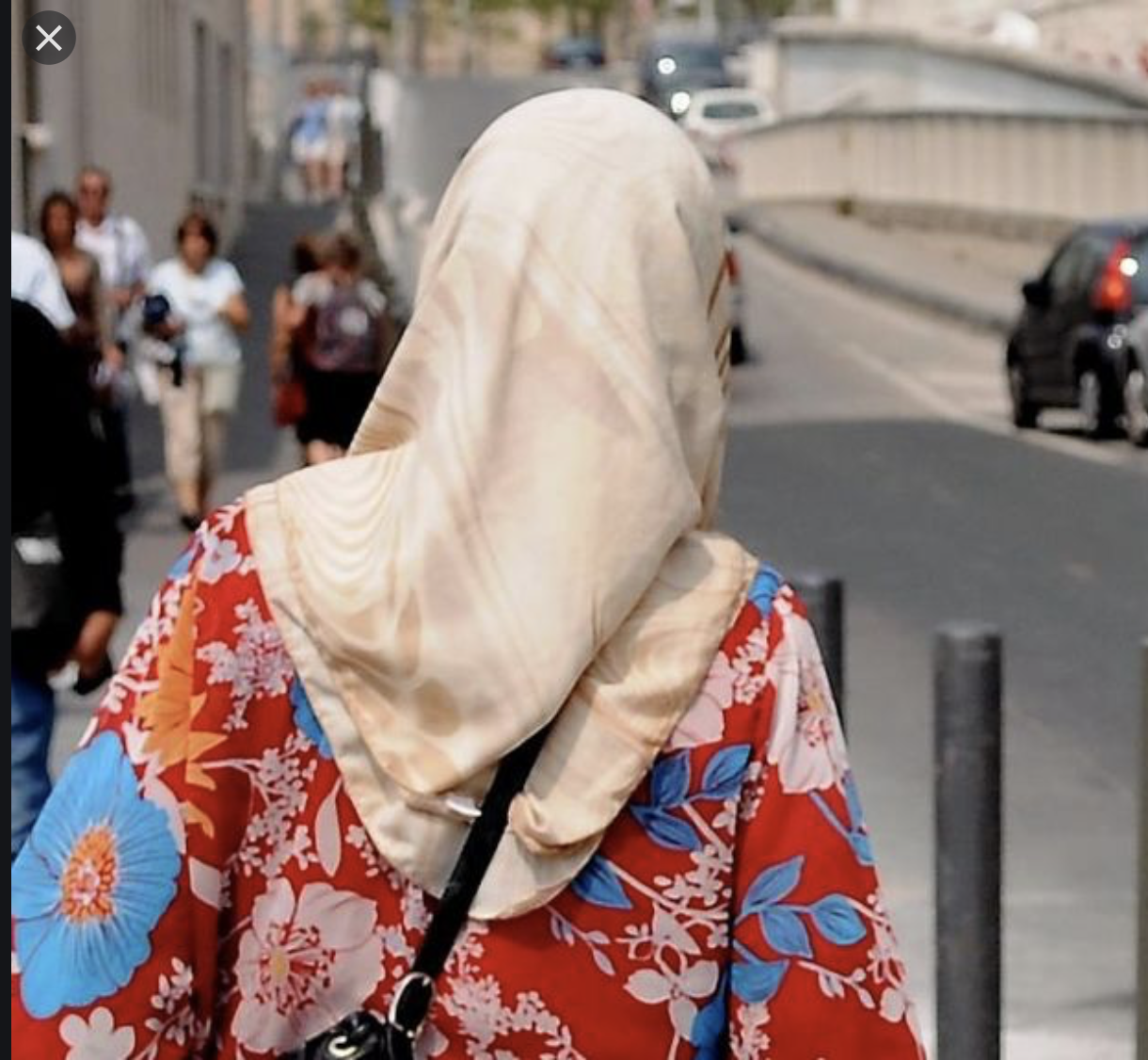
In Iran (where I come from, originally) as well as in other countries of the area, you’re OK as long as you compliment people, tell them that their history is grandiose, their taste unique, their hospitality the best, their virtues without compare. Any deviation from full appreciation immediately draws strong reactions and the slightest remark can be perceived as negative, and therefore, insulting. Multiply this a hundredfold in France where I live, home to innumerable people from those same Muslim countries, many of them now with French nationality. The perceived lack of Respect draws the ire and the lightning bolt of all suburban Jupiters, often first- or second-generation immigrants who have been brainwashed into believing that acceptance of recently-refurbished customs and mores must be absolute, not only from the locals among whom they live but also from the authorities of the country that has taken them in.
Read more…
The Temptation of “More”
 What does it mean, to tell an unvarnished story? To describe our travails, our emotions, our pain or grief, as they are, without adding, without feeling that we need to enhance, turn on searchlights, say “but wait, there’s more,” bring in makeup and costume departments?
What does it mean, to tell an unvarnished story? To describe our travails, our emotions, our pain or grief, as they are, without adding, without feeling that we need to enhance, turn on searchlights, say “but wait, there’s more,” bring in makeup and costume departments?
These are the thoughts that came to me watching the Arte TV channel presentation of a documentary, “Born in Evin” by German-Iranian director Maryam Zaree.The story is that of a quest so many people, no matter race, creed or country, go through at some point or other: who am I, where do I come from, what’s my story? There are so many narratives, so many pasts, so many ways to have lived through it and to relive it, that the process often remains interesting and even banal accounts can offer at least some nuggets that make us more aware, wiser perhaps, able to identify on some level with the story teller.
In this particular case, the director goes way back, to her birth in an Iranian prison in the Islamic Republic of Iran some thirty-nine years ago, when her parents were arrested because of their anti-regime activities. Later, Maryam Zaree and her mother emigrated to Germany where she was brought up but the past never ceased to intrigue and perhaps even haunt her, until, with the help of her mother and others, she reconstructs those times and what followed. It’s an interesting story, and also one rather different from the myriad ones told and retold ad nauseam by refugees and exiles in memoirs, films, novels.
Never mind that in this kind of narrative, after a while, no matter how original the material, things always become repetitive as we’ve turned the page of that book once too often. What bothers me more is the mental CGI. Much like the makeover apps allowing Chinese teenagers to enhance face and body for their social media followers, everyone who tells a story needs to make it stronger, prettier, more relatable.
Thus, in the presentation to this documentary, we hear that Maryam Rezee travelled to numerous destinations in order to hear the stories of people who have lived extreme situations in Iranian prisons or detention centers or more generally have gone through some kind of gruelling process. The people the director meets relate their experience, their memories of what they lived through or witnessed. Superfluous is the comment of the Arte channel, taken–or not– from the film I haven’t yet seen–that it was difficult to get people to speak as Iran is still the Islamic Republic and would retaliate against people critical of that regime. That is an absurd statement. Over the last forty years, I have met, known and written about countless Iranian exiles of all political persuasions and with memories covering a wide range of experiences. I have yet to see one refusing to talk for security reasons. On the contrary, they are often boringly eager to narrate their past, their experience, their problems, which every single one considers unique and never gone through by anyone else. Not one, ever, refuses to share. Saying that they talk under cover or have to be persuaded to give their own testimony may give it a thriller sheen (a genre, alas, more ubiquitous by the day) but it’s simply not true. We Iranians love to enhance not only our stories but history itself. We don’t mind lowering our voice to add that we may well be under surveillance, as the Iranian grocer in El Paso, Texas, or the university student in Heidelberg, Germany does when stating that they’re being followed for representing a threat to the Islamic Republic as they know secret facts that would sink the regime if revealed, etc.
The MEK, a shadowy exile group hated by Iranians inside and outside the country for their cult-like presence actively planning regime change
I see our myth-making capacity, a part of the Iranian psyche, as a failure of personality. Not everone can be as rational as the philosophers of the French Enlightnment but falling into the exact opposite is not admirable, no matter what we think. Inventing facts or presenting vague hunches as life-threatening is not admirable. The Islamic Republic, repulsive as it is, is busy on many fronts keeping itself relevant or viable. I don’t believe it can, at the same time, plan the demise of the millions of Iranian exiles scattered in different parts of the globe who have a low opinion of the Tehran regime and are not shy about expressing their feelings. And no, they don’t court swift reprisal when they do so. We love to wrap ourselves in narratives, thus painting ourselves as worthy descendants of the heroes of Ferdowsi’s Book of Kings. But rewriting reality, whining about being perpetual victims of fate and the nefarious plans of the powers-that-be and, also, believing we are far more relevant than we actually are, prevents us from walking on the solid ground of the here and now. Enhancing reality casts it in shadows and prevents the actual story from being told–which, surely, it deserves.
What I lost forty years ago : the idea of a country
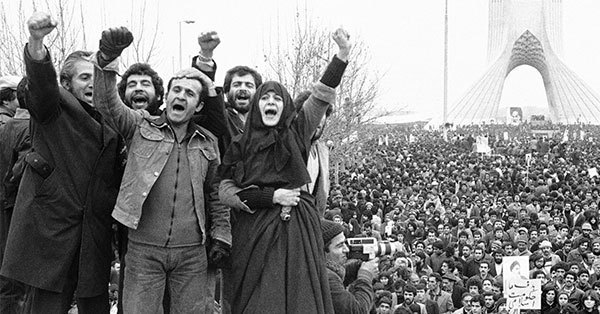 The Islamic revolution took place on February 12, 1979, forty years ago today. I was already living in Paris at the time, Paris where I had traveled when I was five years old, had lived in off and on, studied , and had now been living in for a number of years. Born to a French-speaking family with complicated roots and history, I was of French culture and felt so. But I was an Iranian national and I equally felt so.
The Islamic revolution took place on February 12, 1979, forty years ago today. I was already living in Paris at the time, Paris where I had traveled when I was five years old, had lived in off and on, studied , and had now been living in for a number of years. Born to a French-speaking family with complicated roots and history, I was of French culture and felt so. But I was an Iranian national and I equally felt so.
The revolution occurred not long after the return to Iran of Khomeiny from the Paris suburb of Neauphle-le-Château where he had been welcomed and allowed to shoot his revolutionary messages to Iran, the general public seeing in him the wisdom and serenity of a new Gandhi. That’s how he was perceived by the West, always a pushover for imported spirituality and sold on pretty Disney products as long as the colors are pastel and the decorations shine bright.
In Tehran, on this date forty years ago, the riots of the cadets of an air base were the last nails in the coffin of the Shah’s fallen regime, after months of troubles more or less justified, more or less created wholesale throughout the country. The street followed, with a nonstop flood of unfamiliar characters, dishevelled, spewing Islamist hatred, their fists tight as they chanted slogans about revenge and retribution and promised those brighter tomorrows that become the first line of any discourse in times of power grabs and upheavals. The government, already shaky, could no longer be operative ; Shapour Bakhtiar, the last prime minister appointed by the Shah, went into hiding ; blood started flowing that would never stop.
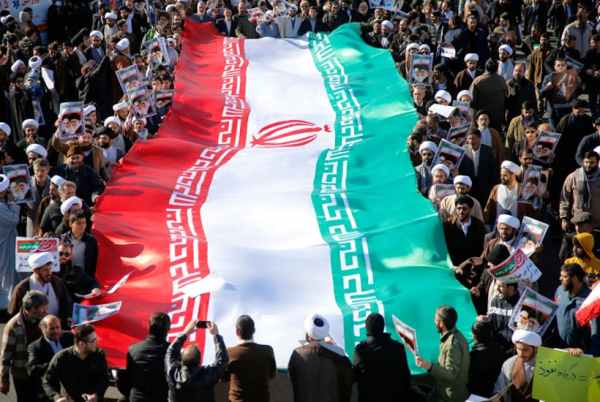
Unaware that my own family would soon be hit directly by the turn of events, I was, like everyone else, stunned, transfixed. From one day to the next, I found myself stateless, my Iranian passport no longer valid, jobless as I had been the librarian of the Iranian cultural center in Paris, and bereft of Iran, this country which, though not typically and unconditionally belonging to it, I was fond of, at least on principle as one must belong to a corner of this planet we live on.
After a few years of a fight with dim prospects to help rid Iran of the Islamic muck that now covered it, I grew away from it, so gradually that I wasn’t aware of the day when it faded in my mind, the vague changes it underwent scarcely interested me, and its future was no longer my concern.
Nothing tied me any longer to this country now fallen to the level of the least acceptable ones. What had been a grand civilization over centuries and even millenia was now one of the most reviled. The philosophical, mystical, spiritual thought that had influenced the world of reflexion since ancient times had been transformed into incomprehensible gibberish by various « doctors of the law » in turbans, their followers fanatical men as well as a number of women hidden, not always forcibly, under black veils, The war with Irak took place, the repression and the violence in place since day one of the revolution continued, the number of executions became the highest in the world, along with China’s, and shiite Islam which had been or had seemed relatively benevolent turned out to be a formidable tool of hatred and threatening propaganda.
What about today? Iranians who are smart as well as gifted have not allowed themselves to be manipulated back into the dark ages as much as the system would have wished. The arts are thriving, so are talents, Women flock to the university as well as to all professions, including those where they are no longer welcome.
People struggle in the midst of material hardship increased a hundredfold by economic sanctions, unemployment and out-of-control inflation but hold on and ignore the regime or mock it more than they fear it, except when they find themselves under arrest, tortured and even hanged in public depending on the whim of this judge or that religious authority.
As for me, I rarely follow what takes place there. I have no ties left to Iran, the past melts into the mists of time. But we can never eradicate our entire history. It occasionally happens that, as if in a dream, images of what I loved in Iran surge back unexpectedly. A beautiful farm in north Tehran that belonged to friends of my parents. Other gardens, with century-old trees, countryside landscapes, gurgling mountain streams, and also long drives for hundreds of miles in the deserts in the center of the country. Under deep blue skies, the uniformly beige earth would stop at the walls of a village, fruit trees whispered in the breeze, travellers were greeted with the typical wide smiles of Iranians for whom every guest is honored. In the middle of modest homes would rise the turquoise dome of a mosque belonging to times when religious faith was not an instrument of hatred.
Other moments come to mind. The sound of the ebb and flow of Caspian waves, the light complaint of the musical ney, the smell of-just watered flowerbeds, all the sounds and scents that the Islamic republic cannot destroy.
It was yesterday or the day before, it was a long time ago.
Facing Thanatos
Forget Allah, Buddha, Christ, etc. Two minor Greek mythological deities excavated by Freud in his theory of what makes us humans tick have been ruling the world forever. Eros, the god or drive for love and Thanatos, that of death. Of course, any number of cultures follows the established pattern of duality. Be it yin and yang or the light versus darkness of my Zoroastrian ancestors, these warring forces live inside all of us. Looking at the state of the world, one would have to wonder if, for several decades now, more than explaining humanity, they aren’t actually splitting it in two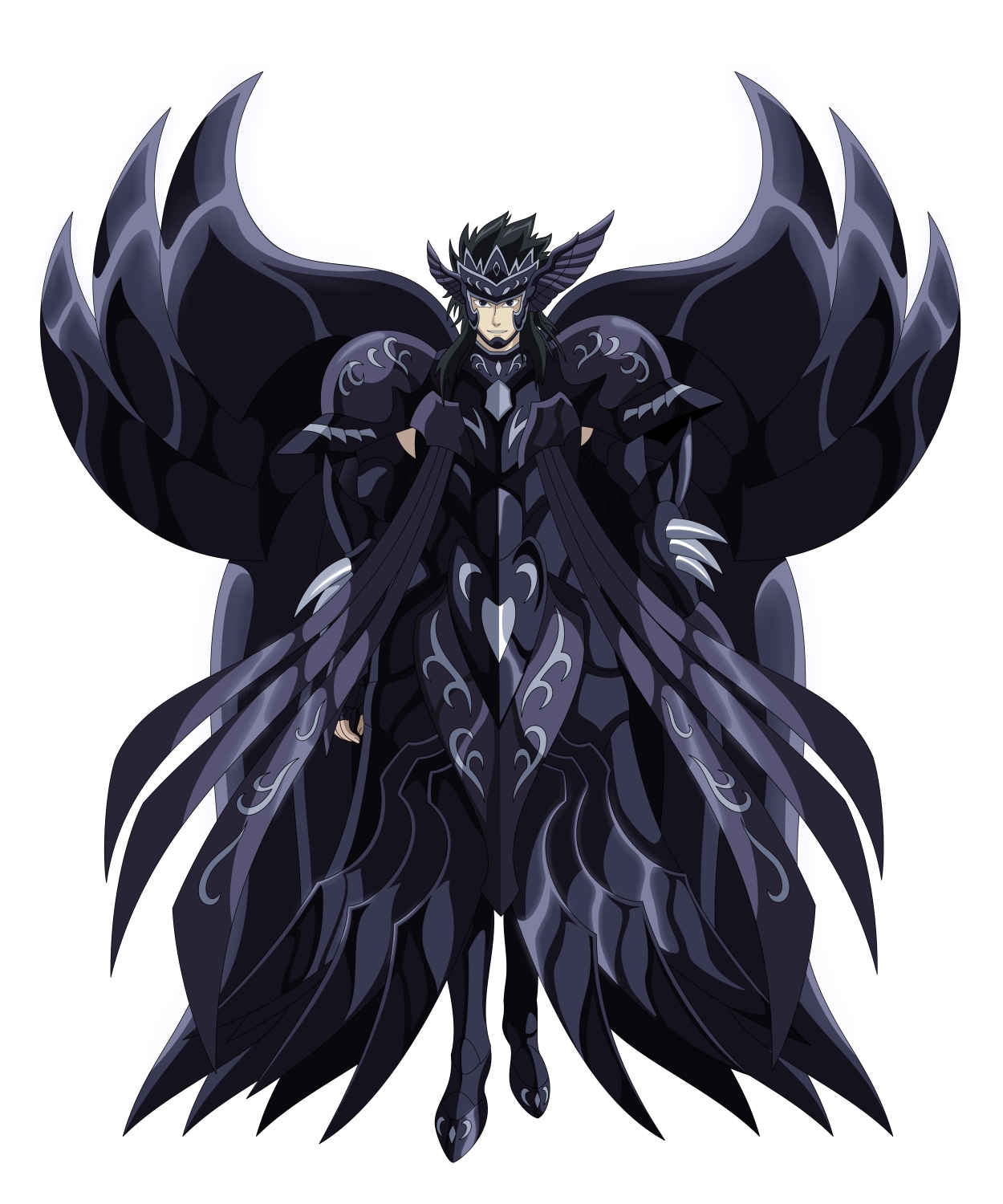
Populations with a pea-sized brain (and I’m being generous here) in countries or communities prey to religious superstition and/or battleground to sectarian or other conflicts, tribalism, warlordism, illegal occupation, and/or crushed under brutal regimes—take your pick—have every reason to believe in Thanatos’s supremacy. That is what they see all around day in and day out. You can preach all you want about peace and love and the brotherhood of man, they would sooner drive a sharp dagger through your lying heart than listen to more pieties. Death is all there is and you are responsible for this, they will assert time and again, you caused this war and the one before that. You brought to power that tyrant. You stole our ressources, you victimized us, and now you insult our prophets. You deserve death, I will kill you and die myself rather than live to see another day.
There you go. Thanatos once more spreading his dark wings, grabbing his scythe. What can you do against imbeciles whose most powerful emotion is hatred, who will always destroy rather than build, who will hold the most asinine beliefs and defend them to the death?
Also powerful believers in Thanatos are the vicious regimes which we, to our shame, pretend are no better and no worse than any other, whose repulsive heads we invite at our tables, with whose governments we sign juicy contracts, whose terrible crimes we pretend not to see. Did our administration voice even a modest protest over the 47 executions in Saudi Arabia last Saturday? Is decapitation horrendous only when performed by ISIS? Is crucifixion bad when putting Christ to death but okay to get rid of pesky teenagers who send out one tweet too many? Yet, even that kingdom built on sand has executed only 150 people in 2015. Our real best buddy since the signing of the doomed-to-crumble nuclear agreement is Iran where nearly one thousand people have been executed during the year that just ended. (Hurray for Iran, they’re getting there, though still far from our own United States where this past year 33,000 of our citizens died through gun violence—thirty-three THOUSAND?—and where cops killed almost 1200 people, mostly from minorities and often unarmed. All this to much cheering from the half-wits who refuse gun control and police accountability.)
We can’t confront Thanatos, his hold is too strong on fanatics and deranged individuals (for whom we continue to voice excuses and understanding.) That shouldn’t prevent us from recognizing his cult as the big divide between civilized discourse and mayhem. Or from picking Eros.
Speaking Up
 My gorgeous Paris has once again been attacked. So far, the toll stands at 129 people dead, scores more between life and death in hospitals. The eight perpetrators too are dead (no great loss, that), some blowing themselves up, one shot by police. Huge police operations are underway, two more suspects were killed on Wednesday.
My gorgeous Paris has once again been attacked. So far, the toll stands at 129 people dead, scores more between life and death in hospitals. The eight perpetrators too are dead (no great loss, that), some blowing themselves up, one shot by police. Huge police operations are underway, two more suspects were killed on Wednesday.
Once again, after September 11, 2001, after the massacre of cartoonists at Charlie Hebdo last January, following terrorist attacks too numerous to list or even count in the West and throughout the world, we are left stunned and heartbroken. Then, right away, awash in pieties: Don’t paint everyone with the same brush, don’t jump to conclusions, don’t hate. Except that it is becoming more difficult every time to refuse to see the obvious: that Islam is a pretty awful religion and its followers benighted for the most part.
It wasn’t always the case. I’m not even talking about Islam historically. Over the centuries, superb art and thought have come out of the Islamic world. One might be allowed to think that these grandiose cultures—Persian, Syrian, Egyptian, etc.—flourished despite Islam as none ever grew out of the sands of Arabia where Mohammad was born. The only gift humanity received from that country is a violent religion based on a “holy” book of dubious origin (discussion of which is blasphemy and punishable by death) and forced by the sword upon countless people. Today, Saudi Arabia is still rotten to the core, home to a corrupt and repulsive highly conservative regime.
No, when I say Islam wasn’t always awful, I’m talking about the way it was before it became a political ideology when the Islamic Revolution happened in Iran in 1979. When I was growing up in that country, people didn’t pay much mind to religion and Islam was, as the grandfather of the Turkish Nobel Prize winner Orhan Pamuk used to put it, “for servants and for the poor.” I didn’t know anyone who paid more than lip service to religious belief. Indeed, Iran was not religious. Our feasts and holidays went back to ancient Persia, we celebrated the spring equinox, we jumped over fire as our Zoroastrian forefathers had (it speaks to the resilience of the Iranian spirit that not even the mullahs’ regime managed to ban these, though not for lack of trying). I don’t remember ever seeing a Koran or the inside of a mosque—except once or twice for a funeral.
All that to say that if I didn’t pay much mind to Iran’s official religion, I wasn’t born anti-Islam. But I’m fast becoming so and not only because of extremists and raving lunatics. Muslims demand respect but this cuts both ways. I cannot accept that they would block traffic on Paris streets for public Friday prayer. There aren’t enough mosques? That’s just too bad. How about praying at home? How dare Muslims ask for an equal number of mosques and churches? (BTW, how about building a couple of churches in Jeddah or Karachi?) How dare they ask that all the French eat meat from animals slaughtered according to Muslim rites? How dare they consider eating pork or drinking alcohol as an attack on their faith? How dare they harass on the streets women whose attire they find immodest? On top of all that, how dare they take offense at people’s negative reactions and their growing resentment? Public perception is going to change when Muslim communities accept that even if societies in the West are secular, their culture is judeo-christian (I myself don’t believe in anything. Faith, religion, or even spirituality are all, to me, as Bill Maher puts it, “intellectually embarrassing anachronisms from the Bronze Age.”)
But the worse part of the war of civilizations we are living through, though pretending we’re not, is, as I said above, that in the last decades Islam has become an ideology with a world domination goal. Muslims are first Muslims, then citizens of the Western countries that have taken them in. I myself am not first agnostic, then French-American. My friends in Virginia are not first Presbyterian, then American. My neighbors in Paris are not first Catholic, then French. This is as should be. We belong to a community, to a country, to a flag, to a constitution and a set of laws. But since the horrendous Paris attacks, Muslims interviewed by media or expressing themselves on various sites can only talk about the fact that their faith will once again be viewed negatively. I didn’t hear a single one—except for renegade Muslims whose numbers gratifyingly grow by the day—express chagrin at the actual events, sorrow for the victims, condemnation of the perpetrators or worry about the future of Europe–or the world, for that matter. Not one expressed fear of further attacks against the country. The extremists rejoice while all the so-called moderates have to say is “this is not Islam.” It’s not? Only George W. Bush, not the brightest intellect, ever believed that Islam is a religion of peace.
Things will change only if the Muslim communities in the West reverse their stance. The day Muslim French or British or German or Italian or American citizens define themselves through belonging to the country that has taken them or their parents or their grandparents in, and then, only then, as belonging to this or that faith, is the day they will be fully accepted. Until then, a day probably long in coming, they will continue to be resented and feared. In the meantime, another threat looms larger and larger: that of European nationalist and extreme right parties attracting more followers. Then we can all relive the horrors of seventy years ago—this time aimed at immigrant minorities—courtesy of the Prophet.
When Writers Muzzle Free Speech
The discussion continues over PEN members* signing their names to a shameful refusal to award the PEN American Center’s Freedom of Expression Courage Award to the French satirical publication Charlie Hebdo. As a reminder to those of you who have since been washed over by successive waves of news, twelve Charlie Hebdo staff members were slain in Paris last January 7th over the publication’s cartoons deemed offensive by irate Islamists. These, Kalashnikov in hand, showed their displeasure in the swift and bloody Islamist manner we are learning to expect and recognize.
The controversy has raged on: What latitude does free expression give us? Can any faith claim infallibility and demand total respect not only from its followers but from everyone regarding its tenets, its holy book, its founder? Honestly, Read more…
Sure, I’m indignant
Despite the complicated and not always happy world we live in, I most often manage to avoid being driven by contempt or hatred. For moral reasons—surely, despising and hating must be harmful to the soul–for trite aesthetic ones (to avoid those vertical lines a lifetime of disapproval etches round the mouths of older people and to prevent those between my eyebrows from deepening), for health reasons (to keep my blood pressure normal, my heart rate slow, my hands warm). Also, my mental setup is such that I believe in silver linings more than in clouds, I deliberately take things at face value, I don’t believe that a new conspiracy is being spun every minute, and I see the line running from A to Z as always straight. In sum, I refuse to be goaded into suspicion, anger or indignation.
Not an easy resolve, as this past week demonstrates.
First, the appearance, seemingly out of nowhere, of hordes of m-f-ing murderous flesh-eating Islamists, the ISIS. And how do these names, acronyms, abbreviations, become legitimate so quickly, how do we go in a few hours from “the IS what?” to “yes, of course, the ISIS,” and start bandying the letters as though these people form a bona fide political group with which, sure, we can talk once we bring them to the table, and indeed, the Sunnis have been ill-treated by Maliki so naturally enough they eat the heart of their enemies or post videos of themselves smoking, relaxed, beside the heads of decapitated soldiers, occasionally pausing in their banter to insult one of the cut heads. What? Several thousand dead already? Well, this is war, it’s not supposed to be pretty. Read more…

